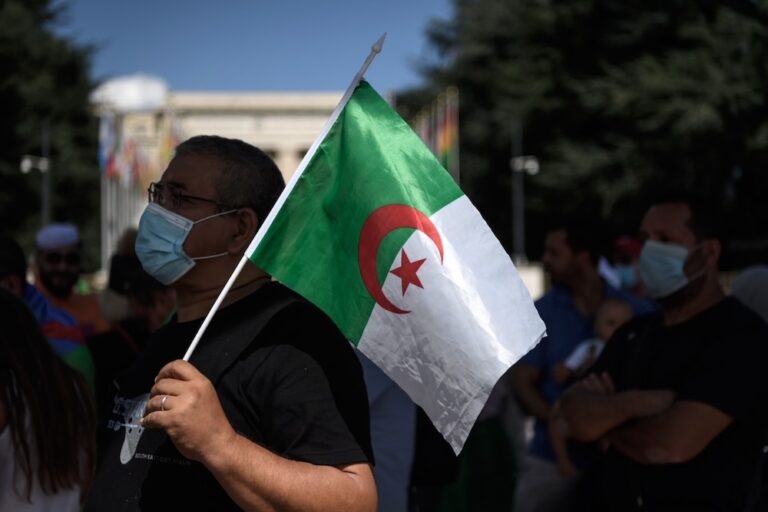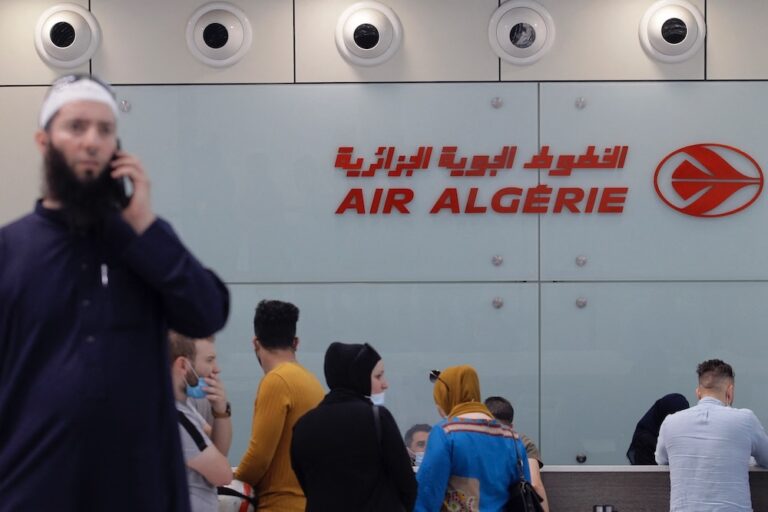"We fear that this act of censorship heralds the start of government control of the Internet in Algeria," RSF said.
(RSF/IFEX) – Reporters Without Borders is disturbed to learn that access to the website of the independent news radio station, Radio Kalima-Algérie ( http://www.kalimadz.com ), has been completely blocked for the past two days. At the same time, Eutelsat has stopped carrying the station’s broadcasts on its Hotbird satellite.
“We fear that this act of censorship heralds the start of government control of the Internet in Algeria,” Reporters Without Borders said. “We urge the authorities to explain this blocking, which has been carried out in an arbitrary manner, and to order the website’s immediate unblocking. Algeria must not be added to the list of countries that censor the Internet, because the freedom of expression of Algerians would suffer.”
The press freedom organisation added: “This case stems in part from the fact that the government has a monopoly of broadcasting in Algeria. We urge the authorities to open up broadcasting for the sake of news diversity.”
Radio Kalima-Algérie’s website began to gradually become inaccessible in various parts of Algeria on 16 March 2010 before becoming totally blocked on 17 March. Broadcasting of its programmes via Eutelsat’s Hotbird satellite stopped on 19 March. Reporters Without Borders has written to the Paris-based European satellite company to ask why.
Launched on 15 January by a group of independent journalists, Radio Kalima-Algérie is the only privately-owned Algerian radio station as the government has controlled all broadcast media since Algeria’s independence in 1962. Broadcasting programmes in Arabic, French and Amazig on issues relating to culture, human rights and civil liberties, it reaches 15,000 to 20,000 listeners a day.
Radio Kalima-Algérie has already covered sensitive stories. It reported the murder of the head of the police criminal investigation department, contradicting the official version. It has also reported cases of alleged corruption in which government officials are implicated. Its reports have been picked up by the Algerian media, to the government’s evident annoyance.
Referring to the measures taken against the station, Radio Kalima-Algérie representative Yahia Bounouar said: “The Algerian authorities cannot accept that the media should be at the service of citizens instead of their propaganda. It is a call to order, a message to all the others (. . .) We are going to press on. We are making proxy servers available to Internet users so that they can circumvent the censorship and access our website.”
The website of sister station Radio Kalima-Tunisie is also blocked in neighbouring Tunisia, as is the online independent newspaper Kalima, which is edited by Tunisian journalist Sihem Bensédrine. Tunisia is on the updated list of “Enemies of the Internet” which Reporters Without Borders issued on 12 March to mark World Day Against Cyber-Censorship.
A cyber-crime law adopted in Algeria in July 2009 gives the authorities the legal means to block websites. Article 12 says: “Internet Service Providers are required to intervene without delay to withdraw content to which they allow access in the event of a breach of the law, to isolate it or render it inaccessible as soon as they become aware of it directly or indirectly (. . .) They are required to install technical provisions for restricting accessibility to distributors of content that is contrary to public order or decency, and to inform subscribers about it.”
The opposition website Rachad.org ( http://www.rachad.org ) has also been blocked since the start of January.


